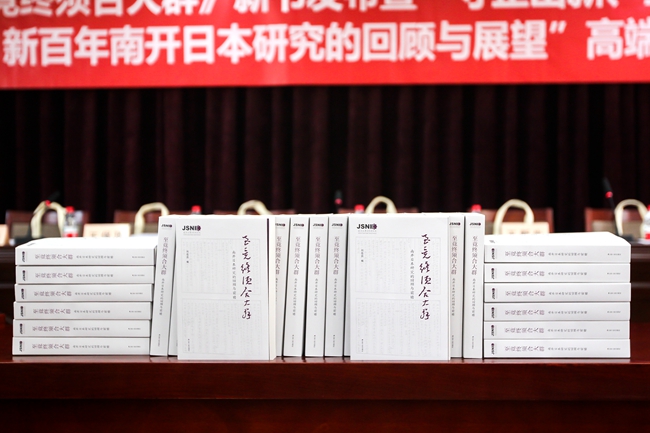
On October 9th, as the first anniversary of Nankai New Century is approaching, the new book launch event of To the End we Must Be Together: Retrospect and Prospect of Nankai Japanese Studies and the high-level forum of Keeping To the New And Mutual Learning: Retrospect and Prospect of Nankai Japanese Studies in the New Century were held in Nankai University.
The book was published by Jiangsu People's Publishing House and compiled by Professor Liu Yuebing, dean of Japan Research Institute of Nankai University. It is a natural extension of the first 19 volumes of the Hundred-Year Library of Nankai Japanese Studies. Encyclopedia includes Chinese Japanese authoritative scholar in the field of research related to the 19th volume library of authors and works of in-depth, inside the nankai Japan research materials first draft (1898-1949) , the first fully shows the 50 years before the founding of the People's Republic of China nankai senior Japanese research, the basic situation such as relations with Japan. This book is of great significance to understand the tradition and current situation of Nankai Japanese studies and the status of Nankai Japanese studies in Chinese and Japanese research circles.

Cao Xuetao, President of Nankai University, delivered a speech at the launch of the book. He said that the publication of The book is a great gift to Nankai University in the new century, at a crucial time when nankai University is striving to promote the construction of double first-class. It embodies the joint efforts of all the authors, publishers and editors. Each discipline should carefully summarize its own traditions. The Japanese studies in Nankai university have a long history and profound foundation, and attach great importance to interdisciplinary studies. Faced with new requirements of the new era, scholars in Nankai University have been constantly exploring and innovating, combining individual research with national needs. The publication of this book has activated the vital elements in the tradition of Japanese studies in Nankai and found the driving force to realize real innovation. It is an epitome of the discipline construction in Nankai and also sets an example for the development of other disciplines. The study of history can better promote the development of social economy in the real world. I hope that experts and scholars can make more insightful comments at the forum and jointly provide intellectual support for China's progress.
